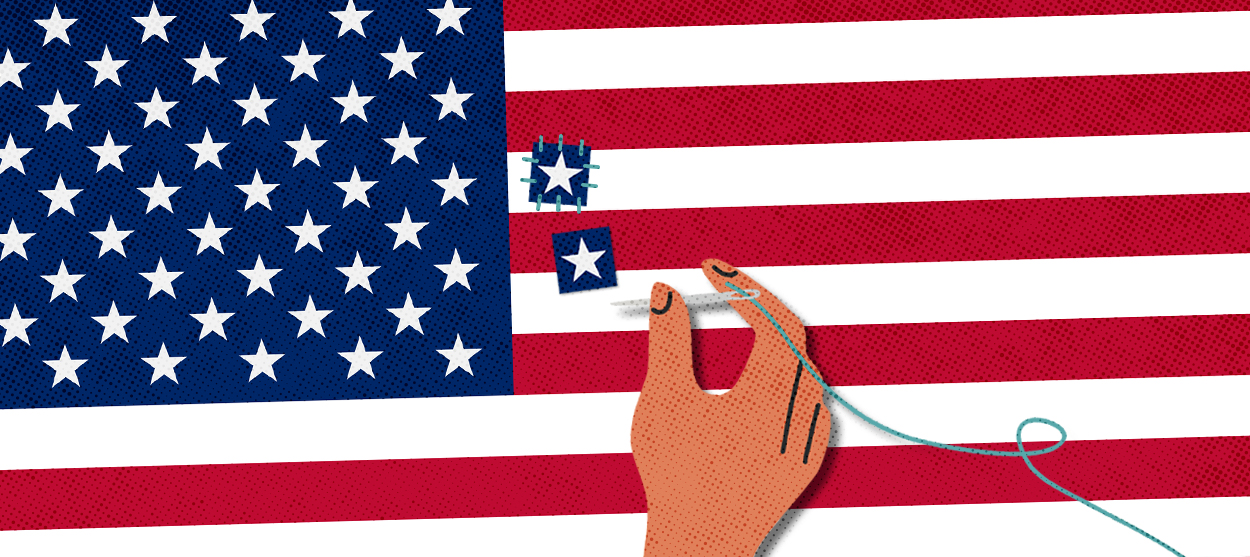Statehood for D.C. and Puerto Rico only needs 50 votes
And Democrats don't need to nuke the filibuster to do it


A free daily email with the biggest news stories of the day – and the best features from TheWeek.com
You are now subscribed
Your newsletter sign-up was successful
Many journalists and political commentators have been pessimistic about the possibility of statehood for the District of Columbia and Puerto Rico. This seems to be primarily because, despite the recent Democratic victories in Georgia, moderate senators like Joe Manchin (D-W.V.), Diane Feinstein (D-Calif), and Angus King (I-Maine) continue to support the legislative filibuster. It is impossible to imagine Republican senators voting to give Democratic-leaning areas full representation, so the issue must be dead on arrival in the upper chamber. But in a recent CNN interview, Manchin himself provided evidence for why this thinking is all wrong.
In the interview, Manchin reaffirmed his opposition to eliminating the legislative filibuster, but in response to a separate question about D.C. and Puerto Rico statehood, said that, "I don't know enough about that yet. I want to see the pros and cons. So, I'm waiting to see all the facts. I'm open up to see everything." What goes unsaid but implied is that these two answers are not incompatible. In fact, there is a solid legal, historic, and moral case that the legislative filibuster can remain but that it shouldn't be applied to statehood.
Legal
The Week
Escape your echo chamber. Get the facts behind the news, plus analysis from multiple perspectives.

Sign up for The Week's Free Newsletters
From our morning news briefing to a weekly Good News Newsletter, get the best of The Week delivered directly to your inbox.
From our morning news briefing to a weekly Good News Newsletter, get the best of The Week delivered directly to your inbox.
Constitutionally, the admission of a new state is not actually a legislative matter, so the legislative filibuster shouldn't apply. In recent years both Democrats and Republicans, by ending the filibuster for confirming presidential appointments (a power outlined in Article II, Section 2), have in effect agreed the filibuster shouldn't apply to certain constitutional matters that aren't covered by Article I of the Constitution, which lays out the design of Congress and its legislative powers. The admission of a new state is also not included in Article I. The drafters set it apart as something distinct, not a change to law but a change to the structure of government.
Admission of states is dealt with separately in Article VI, Section 3 which says, "New states may be admitted by the Congress into this union; but no new states shall be formed or erected within the jurisdiction of any other state; nor any state be formed by the junction of two or more states, or parts of states, without the consent of the legislatures of the states concerned as well as of the Congress."
Historic
It is no accident that the framers set the admission of new states as a matter separate from legislation. It is also clear they purposely choose not to have a supermajority requirement for it, as had existed under the Articles of Confederation. Our early leaders understood the existential need to add new states, but the Articles made the process nearly impossible. Having territories like Vermont bordering the new country which existed in an unaligned legal grey area because they weren't able to be admitted was a real potential threat to the nation. An attempt was made to admit the state of Franklin (an area that is now Eastern Tennessee) which got majority support but failed to get supermajority support in part due to a dispute with North Carolina over who controlled the area.
A free daily email with the biggest news stories of the day – and the best features from TheWeek.com
Having a clear system to admit new states with a simple majority, as long as the new state wasn't part of another state without that state's permission, was considered an important improvement of the new Constitution.
Moral
The two main arguments for keeping the legislative filibuster are that allowing endless debate forces compromise and protects the rights of the legislative minority. As Sen. King said two years ago defending the filibuster, "One, it really does require some level of bipartisanship. It requires some negotiation. The majority can't just run over the minority and in the long run, legislation is better if it's formed that way."
Neither of these arguments make sense when applied to the unique issue of statehood. Legally, new states must be admitted under the equal footing doctrine. You can't admit a state with less powers or rights than the others. So statehood is effectively a binary question with no possibility of compromise. It can't be made "better," it either happens or it doesn't.
Finally, applying the filibuster to statehood would make a mockery of the concept of minority rights. The argument that a partisan minority deserves some say in the direction of our laws is typically understandable, but truly absurd when used as an excuse to deny millions of Americans any representation at all. There is no more disempowered minority than the minority of Americans without an equal vote in Congress who want one, particularly when most of them are underrepresented ethnic minorities. Morally, you can't argue a filibuster giving more Americans an indirect say in our laws if the effect is preventing these citizens from having any say at all.
Ultimately, the rules of the Senate are whatever a majority of senators say they are. It is possible and reasonable both to keep the legislative filibuster and to allow statehood to proceed with a simple majority vote. Democrats can grant full representation to the 3.9 million people living in D.C. and Puerto Rico — if they want to.
Jon Walker is the author of After Legalization: Understanding the Future of Marijuana Policy. He is a freelance reporter and policy analyst that focuses on health care, drug policy, and politics.
